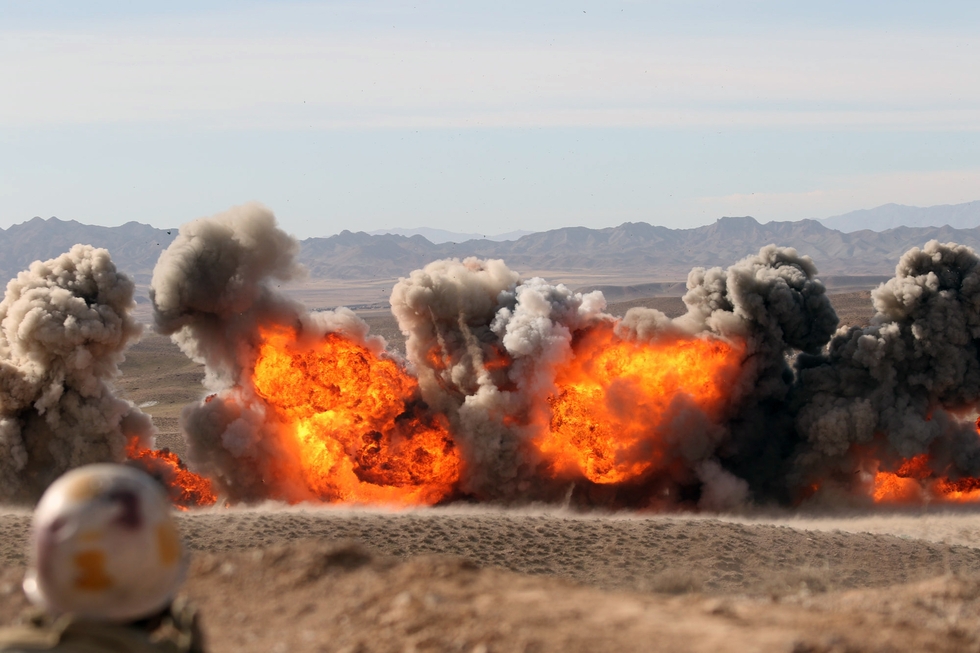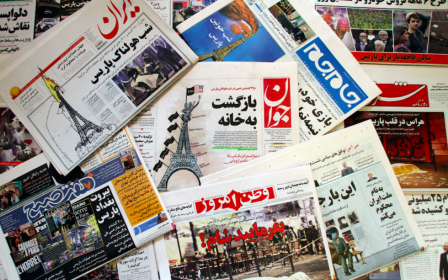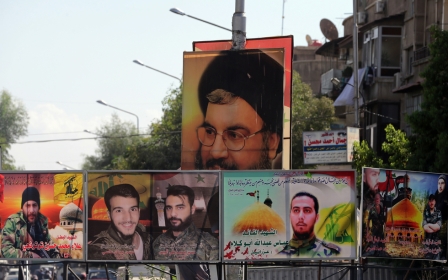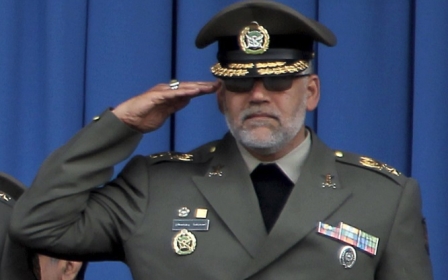Terror threat looms large in Iran

In the past week an array of senior Iranian security and military officials have warned of the threat of terrorist attacks emanating from the so-called Islamic State (IS) and related jihadist networks.
The latest announcement comes from Mohammad Ali Jaafari, the commander of the Islamic Revolutionary Guards Corps (IRGC), who on Sunday warned that IS or Daesh has for some time sought to create “instability” in Iran.
Jaafari’s warning followed on the heels of Interior Minister Abdol-Reza Rahmani Fazli’s interview with the state broadcaster on Saturday where he claimed that Iranian security forces had discovered several “bombs” on the day of the interview alone.
In addition to these statements, Iranian security agencies have in the past few days disclosed details on the discovery of explosives, disruption of plots and the dismantling of terrorist groups. The latest is a statement from the Ministry of Intelligence to the effect that a terrorist team which planned to bomb strategic highways in the eastern Sistan va Baluchistan province, had been disrupted.
The quick succession of these warnings and a constant stream of information related to alleged foiled plots leave little doubt that the Iranian authorities are grappling with an immediate terrorist threat unprecedented in both scope and scale.
What marks out this terrorism threat is not only its association with IS but the fact that it encompasses a broader range of international jihadist networks including al-Qaeda. Moreover, the Islamic Republic’s loss of immunity to international jihadist terrorism is not only tied to its role in Syria but is symptomatic of a wider breakdown of relations with Sunni Islamist groups.
Immediate threat
The deterioration of the Islamic Republic’s threat environment is for the most part tied to a rapidly evolving geopolitical landscape. The escalation of fighting in Syria, underpinned by Russian air strikes and the intensification of Iranian ground operations, has had the immediate effect of strengthening Syrian President Bashar al-Assad’s position.
The transformation of the Syrian battlefield will inevitably create an anti-Iranian backlash. The suicide bombings earlier this month in Bourj el-Barajneh (south Beirut), claimed by IS, was clearly aimed at Iran’s ally Hezbollah, and sent an unmistakeable message to Tehran.
But geopolitical developments, and attendant security threats, extend well beyond the Syrian war and its immediate neighbourhood in the Levant. The commander of the Iranian army, Brigadier General Ahmad Reza Pourdastan, recently warned of an IS threat to Iran originating from northern Afghanistan.
To the Iranian military and security establishment, the so-called Islamic State represents a threat inasmuch as IS, unlike its ideological compatriots in al-Qaeda and related jihadist groups, identifies Shia Muslims, and by extension the Islamic Republic, as its primary enemy.
This problem is compounded by the fact that even al-Qaeda, which for years avoided targeting Iran on political and logistical grounds, has adopted a more belligerent attitude towards the Islamic Republic. This is almost entirely because of Iran’s whole-hearted commitment to the defence of the Syrian government.
This belligerence was underlined in dramatic terms by Abu Mohammad al-Joulani, the head of the Nusra Front (the al-Qaeda affiliate in Syria), who in an interview with Al-Jazeera in June threatened to take the fight to the Iranian “interior”.
Whilst making these threats undeniably raises the stakes for Iran, actually delivering on them is a different matter altogether. Groups like the Nusra Front and so-called Islamic State face a tough security environment in Iran in the form of a wide array of experienced, vigilant and well-resourced security and intelligence services.
A pressing challenge for the Iranian security forces is to seek out and disrupt any IS and Nusra Front sponsorship of local militant groups in sensitive border regions, particularly in the Sistan va Baluchistan and Western Azerbaijan provinces.
Indigenous Sunni militant groups in these regions have a proven track record in attacking local government and security targets. A central concern is that by co-opting the resources and local knowledge of these groups, IS may seek to attack soft targets in major urban centres, in particular the capital city Tehran, in dramatic marauding-style terror attacks, not dissimilar to the recent attacks in Paris.
Cause and effect
The deterioration of regional security, as demonstrated by the rise of IS, is taken so seriously in Tehran that even the Supreme Leader Ayatollah Khamenei has seen fit to consistently and bluntly address the issue in recent months.
In his latest intervention on Sunday, at a meeting with Turkmen President Gurbanguly Berdimuhamedow, Khamenei asserted that the way to deal with “terrorist” currents is to involve the people in “correct” Islamic activities with a view to strengthening “moderate” and “rational” Islamic currents.
The problem for the Islamic Republic is that in recent years it has progressively lost the ability to influence, let alone initiate, “correct” Islamic activities in the Sunni Muslim realm. The dramatic diminution of this capability has impacted on a wide area of Iranian foreign policy, in addition to making Iran more vulnerable to international terrorism.
Contrary to widespread misunderstanding in the media and academia, the central issue is not one of sectarianism but ironically one of greater rationalisation in Iranian foreign policy, which prioritises the national interest at the expense of revolutionary Islamic ethos.
Whilst the process of rationalisation has been underway for decades, it has dramatically escalated under the government of President Hassan Rouhani, whose priority in the international sphere is to fully de-radicalise foreign policy.
A dramatic symptom of this process, and one which is also related to the Syria war, is the breakdown of Iran’s relations with Hamas. A far deeper development concerns the erosion of ties between the Islamic Republic and the Muslim Brotherhood, both in its Egyptian heartland and further afield.
The sum effect of these developments is a loss of influence on Sunni Islamic political circles and the resulting inability to negotiate away disputes and misunderstandings arising from Iran’s involvement in regional conflicts.
In so far as international terrorism is concerned the Islamic Republic now occupies the same uncomfortable space as other states, namely that it no longer enjoys immunity from the wrath of the global jihad. An IS-related or inspired atrocity in Tehran may now be only a matter of time.
- Mahan Abedin is an analyst of Iranian politics. He is the director of the research group Dysart Consulting.
The views expressed in this article belong to the author and do not necessarily reflect the editorial policy of Middle East Eye.
Image: An explosion as Iranian soldiers participate in military manoeuvres on the outskirts of the northeastern Iranian town of Torbat-E-Jam, near Mashhad, on November 17, 2015. Iran started manoeuvres to respond to possible attacks by armed groups, such as the Islamic State (IS) group. (AFP)
New MEE newsletter: Jerusalem Dispatch
Sign up to get the latest insights and analysis on Israel-Palestine, alongside Turkey Unpacked and other MEE newsletters
Middle East Eye delivers independent and unrivalled coverage and analysis of the Middle East, North Africa and beyond. To learn more about republishing this content and the associated fees, please fill out this form. More about MEE can be found here.





